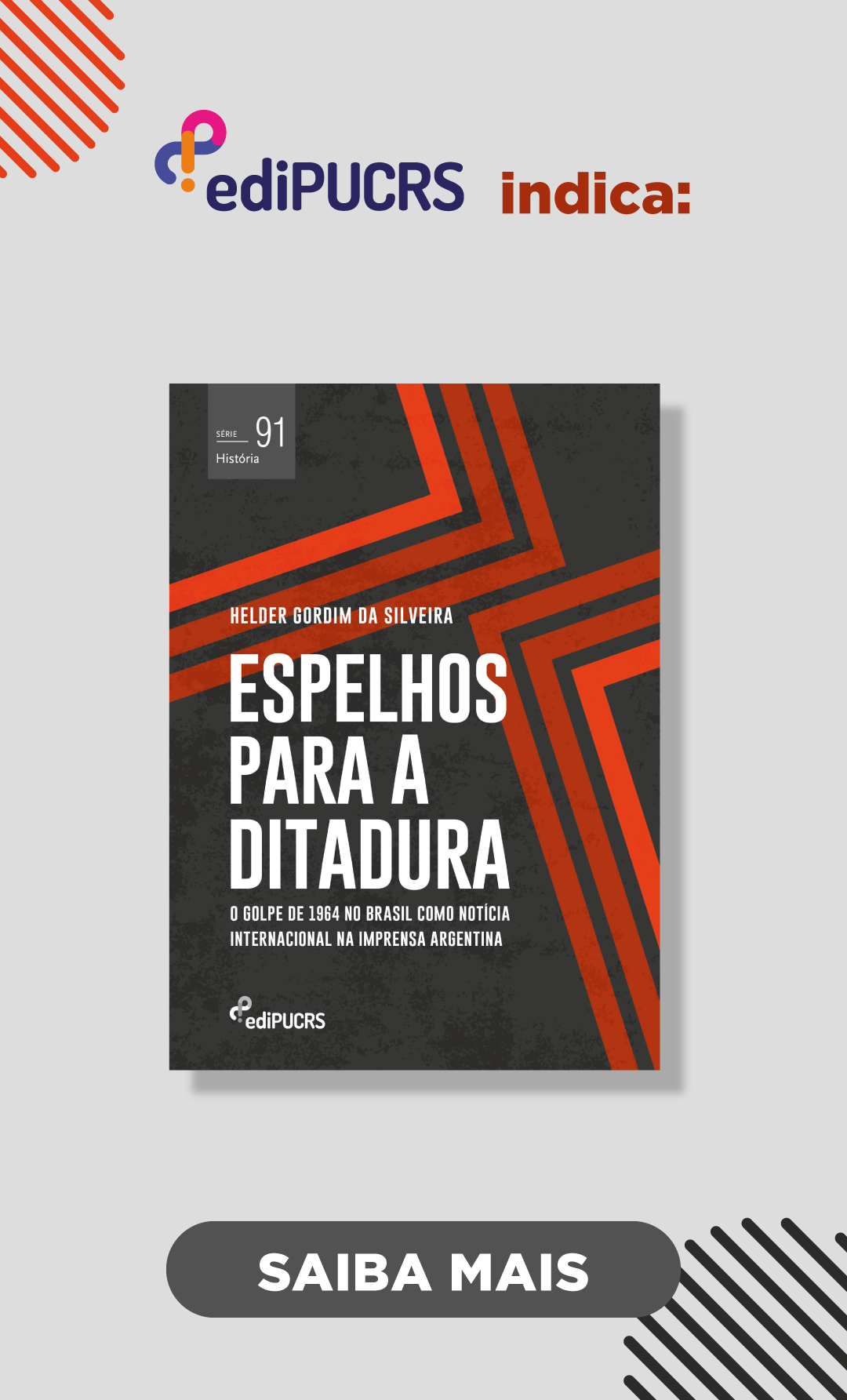- Área principal: História
- Qualis: A3
- Período: 2017-2020
About the Journal
Brief history of the magazine
Created in September 2009 as a result of a project coordinated by Dr. Janete Silveira Abrão, the first edition was launched in the first semester of 2010, and since then, the magazine has been published regularly every six months. Subsequently, Dr. Marçal de Menezes Paredes held the position of editor until the 1st semester of 2014, when Dr. Leandro Pereira Gonçalves took over the direction of the journal until 2017, when he passed the position to Dr. Luciana Murari. The current publisher is Dr. Marlise Regina Meyrer, who assumed her role in March 2019. Thus, the magazine has always maintained a fruitful relationship between PPGH / PUCRS professors and internal and external students.
Keeping the tradition of student autonomy, the Oficina do Historiador magazine, classified by Qualis / Capes as B3, defines itself as a space for the dissemination of scientific production and research carried out by teachers and, mainly, by students of the various Postgraduate Courses in the country's history.
Focus and Scope
The Oficina do Historidor is a semi-annual newspaper published by the Postgraduate Program in History of the Pontifica Universidade Catolida de Rio Grande do Sul (PUCRS). The magazine is a space for scientific production and research carried out by teachers and, mainly, students from various postgraduate courses in the history of the interior of Brazil and abroad. The exclusively virtual nature aims to disseminate academic production to a wide audience interested in studies on various historical topics and contexts. In this way, Oficina do historidor intends to promote research and the dissemination of its results, in addition to promoting historiographic debate.
Peer Review Process
Submitted texts are formally evaluated first by the editorial staff, who may request corrections and additions. Texts that do not fall within the scope of the Journal, that do not meet mandatory requirements or that are not adequate within the established deadline will be archived.
Once the admissibility of the submission has been verified, two opinions are requested from people specialised in the subject, which will be used by the publishers, with the latter remaining the final decision. Publication of papers is subject to compliance with its recommendations. The evaluation takes into account the originality of the treatment of the theme, the consistency and rigor of the approach, its contribution and its adequacy to the journal's thematic line.
The review system is double-blind: the names of the reviewers will remain confidential and the names of the authors before the reviewers will also be omitted.
Evaluators are expected to be objective in their assessment. If there is any conflict of interest or difficulty in making a judgment without significant influence from external factors, they should contact the editors. They are expected to indicate relevant literature if not accepted in the text. The text and other information provided in the evaluation process should be treated confidentially and may not be used for any other purpose.
Publication Frequency
Continuous flow of publication.
Open Access Policy
This journal provides open access to all its content, following the principle that free access to scientific research generates a greater global exchange of knowledge.
Principles of Ethics and Best Practices in Academic Publishing
Authorship
The authors are original owners and will be responsible for the originality and authorship of their creation, not being the publisher penalised, civil or criminally, for eventual plagiarism or inappropriate content.
Unprecedented and originality
By submitting the manuscript, the authors ensure that the work has not been previously published or is being reviewed by another journal.
Literal copies of excerpts already published will not be accepted, except in exceptional cases, in the form of quotation. Illustrations and graphics from other sources must be credited, or accompanied by permission of their copyright holders, if applicable.
Error correction and retractions
Authors must commit to the publishing house, delivering the text in appropriate language and suitable for publication. However, you must notify the publisher if an error is identified in order to publish an erratum.
Confidentiality
The text submitted for evaluation is a document and will be protected from any form of exploitation.
Indexers, directories and repositories
Other Information
Frequency:
Semestral
Listing and legal deposit data:
Cataloging form prepared by the Information Processing Sector of the PUCRS Central Library.
Article Submission Fees and Article Processing Fees (APCs) Policy:
This journal does not charge fees for publication.
Thematic coverage coded according to CNPq classification, identifying first and second levels:
- Main Area: History
- Qualis: A3
- Period: 2013-2016





